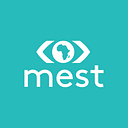Redefining the Coworking Space Model
How coworking spaces should adapt their business models amidst isolation orders
This post was written by MEST Nairobi Community Manager, Fiona Kiruja, for MEST.
The modern concept of co-working is based on the provision of physical workstations to individuals, startups, and developing or developed businesses — a model that is undoubtedly being greatly challenged by the outbreak of COVID-19.
The traditional business model relies on revenue generated from the sharing of a common space with various hot desks, Flexi desks, private offices, meeting rooms, and call booths, as well as entire spaces for event purposes. It also allows for the integration of businesses across diverse industries, with the added advantage of a community that members of the spaces can leverage and interact with each other on a day-to-day basis, face to face.
However over the past few months since the outbreak of COVID-19, we have seen measures such as increased sanitation, social/physical distancing, curfews, and lockdowns imposed on the general public for their own safety and to limit the spread. This has ultimately put a pause on the usual order of business for entrepreneurs and digital nomads across the country, continent, and world, as people have been forced to adopt work-from-home habits for the continuity of business operations.
Coworking spaces are all about collaboration and community — so how can they still work during a period of extreme social distancing and stay at home orders? Once lockdowns are lifted, what does that future of the modern coworking model look like?
In addition to key takeaways from our MEST Presents: The Future of the Modern Coworking Model webinar hosted a few weeks ago (coming soon), here are a few of our tips for how coworking space managers can remain useful to your members, and ensure you are ready for operations to resume once your doors can reopen:
Keep in contact with both members and suppliers
As members are not currently using your space, now is the time to remain flexible with their memberships. We suggest adjusting cancellation policies to allow for more relaxed cancellation periods, lowering pricing for new members and discounts to current members, or freezing memberships in the meantime and resuming them once the spaces open up.
We can all unanimously agree on the vitality of suppliers across the globe as, without them, organizations would not be able to cater to some of the needs of their clients. Suppliers include internet service providers, water delivery companies, cleaning companies, office equipment suppliers, etc.
If the pandemic has greatly impacted your company’s financial standing and therefore your ability to keep your accounts or orders with suppliers going at this time, communicate this in a clear and timely manner.
If you are able to, suggest a payment plan for the outstanding payments during and post the pandemic. This will retain and grow the supplier-client relationship and foster more suitable payment terms in the future.
Add value virtually — content is king!
A large value of coworking spaces is the community events, programs, and opportunities that members get to take part in and experience regularly. In light of these no longer happening in person, many organizations have adopted the webinar model to host a myriad of virtual events that still provide value to their communities from home.
For MEST, these events range from workshops on topic points such as Project Planning and Technical Scoping’ panel discussions, deep dives such as ‘The Future of African Healthtech Innovation amidst the pandemic,’ and event consultation hours with industry experts across multiple business disciplines such as brand storytelling, conflict management, and business development.
Value adds don’t just stop at business-related topics, either. Many organizations like MEST are also catering to the mental health of their communities during this difficult time by collaborating with wellness institutions. Support such as consultation hours with therapists, access to mental health experts, or fitness instructors to provide online workout packages or complimentary virtual sessions to the community members to look out for their physical health while at home are all great ideas.
While free community-building offerings may not contribute to revenue, continuing to support your coworking communities throughout this time is essential to ensure their eager return to your space once it has reopened.
Take this chance to expand your Community
Even long after the pandemic ends, the consequences will be felt for many months to come. As many people get used to working from home, coworking spaces will likely have to redesign their membership packages for their community to return to the space and feel like it is both safe and worthwhile. Value for money has to be shown by the various spaces in addition to the provision of a safe working environment for consumers to spend their hard-earned money on the coworking model.
“Companies are thinking about the decentralization of work, improving efficiency, and reducing costs. Compulsory work-from-home or opting for a nearby coworking space may be an eye-opener for corporates.”
-Founders Cube, India (source: Coworker)
While certainly disruptive, COVID-19 might also pose new opportunities for the coworking model. Corporates that are reassessing whether they want large, private offices for their employees may instead turn toward offering memberships at local coworking spaces. Consider offering larger companies a group membership option for their employees, who could want to give the option of an office environment alongside the opportunity to work-from-home.
In conclusion, the coworking industry has been greatly disrupted by the outbreak of the Coronavirus pandemic across the globe, forcing a complete 180 to 360 change/alteration in business models, community engagement, and value offering. However, COVID-19 does not automatically mean the end of collaborative workspaces indefinitely.
To learn more about the future of modern coworking spaces, look out for our key takeaways blog from MEST Presents webinar with Nairobi Garage and Mettā.
To check out our upcoming MEST Presents webinars, click here.
